
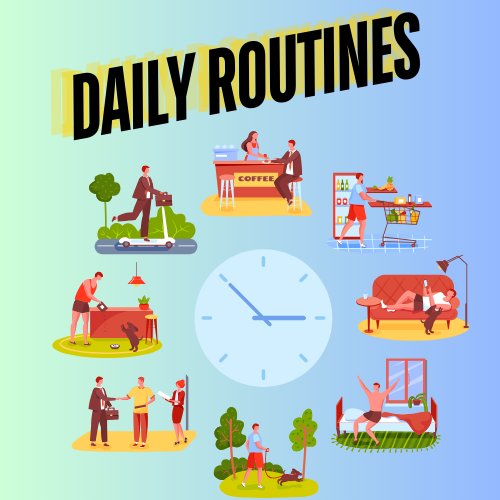
Mastering vocabulary related to time and daily routines is key to effectively describing your daily activities and managing your schedule. In this lesson, you will delve into essential time-related words and phrases that are commonly used in everyday conversations. Understanding these terms will not only improve your English skills but also enhance your ability to communicate about your daily life. Let's get started!
Time-Related Vocabulary:
Clock: A device used for measuring time, typically with hands or numbers to indicate hours and minutes.
Example: "She glanced at the clock on the wall to check the time."
Hour: A unit of time equal to sixty minutes.
Example: "He wakes up at six o'clock every morning."
Minute: A unit of time equal to sixty seconds.
Example: "She waited for him for ten minutes before he arrived."
Morning: The early part of the day, typically from sunrise to noon.
Example: "He enjoys drinking coffee in the morning while reading the newspaper."
Afternoon: The part of the day between noon and evening.
Example: "They went for a walk in the park in the afternoon."
Evening: The part of the day between afternoon and night, typically from sunset to bedtime.
Example: "She likes to relax and watch movies in the evening."
Night: The time between sunset and sunrise, when it is dark outside.
Example: "They went out for dinner and a movie at night."
Day: A period of twenty-four hours, from midnight to midnight.
Example: "They spent the whole day at the beach."
Week: A period of seven days, typically starting on Sunday and ending on Saturday.
Example: "She has dance classes every week on Mondays and Wednesdays."
Daily Routine Vocabulary:
Wake Up: To stop sleeping and become conscious after a period of sleep.
Example: "He wakes up at 7 a.m. every day."
Get Ready: To prepare oneself for the day, often by showering, dressing, and grooming.
Example: "She gets ready for work by 8 a.m."
Breakfast: The first meal of the day, typically eaten in the morning.
Example: "They have cereal and toast for breakfast every day."
Work: Activities done to earn money, typically at a job or profession.
Example: "He works at a software company from 9 a.m. to 5 p.m."
Lunch: A meal eaten in the middle of the day, typically between breakfast and dinner.
Example: "She usually brings her own lunch to work."
Dinner: The main meal of the day, typically eaten in the evening.
Example: "They cook dinner together as a family every night."
Sleep: To rest with eyes closed in a state of unconsciousness, typically during the night.
Example: "She goes to bed early to get enough sleep."
Mastering vocabulary related to time and daily routines is key to effectively describing your daily activities and managing your schedule.
In this lesson, you will delve into essential time-related words and phrases that are commonly used in everyday conversations.
Understanding these terms will not only improve your English skills but also enhance your ability to communicate about your daily life.
Let's get started! Time-Related Vocabulary: Clock: A device used for measuring time, typically with hands or numbers to indicate hours and minutes.
Example: "She glanced at the clock on the wall to check the time." Hour: A unit of time equal to sixty minutes.
Example: "He wakes up at six o'clock every morning." Minute: A unit of time equal to sixty seconds.
Example: "She waited for him for ten minutes before he arrived." Morning: The early part of the day, typically from sunrise to noon.
Example: "He enjoys drinking coffee in the morning while reading the newspaper." Afternoon: The part of the day between noon and evening.
Example: "They went for a walk in the park in the afternoon." Evening: The part of the day between afternoon and night, typically from sunset to bedtime.
Example: "She likes to relax and watch movies in the evening." Night: The time between sunset and sunrise, when it is dark outside.
Example: "They went out for dinner and a movie at night." Day: A period of twenty-four hours, from midnight to midnight.
Example: "They spent the whole day at the beach." Week: A period of seven days, typically starting on Sunday and ending on Saturday.
Example: "She has dance classes every week on Mondays and Wednesdays." Daily Routine Vocabulary: Wake Up: To stop sleeping and become conscious after a period of sleep.
Example: "He wakes up at 7 a.m. every day." Get Ready: To prepare oneself for the day, often by showering, dressing, and grooming.
Example: "She gets ready for work by 8 a.m." Breakfast: The first meal of the day, typically eaten in the morning.
Example: "They have cereal and toast for breakfast every day." Work: Activities done to earn money, typically at a job or profession.
Example: "He works at a software company from 9 a.m. to 5 p.m." Lunch: A meal eaten in the middle of the day, typically between breakfast and dinner.
Example: "She usually brings her own lunch to work." Dinner: The main meal of the day, typically eaten in the evening.
Example: "They cook dinner together as a family every night." Sleep: To rest with eyes closed in a state of unconsciousness, typically during the night.
Example: "She goes to bed early to get enough sleep."
|
|

MorningMorning |

I wake up in the morning.I wake up in the morning. |

AfternoonAfternoon |
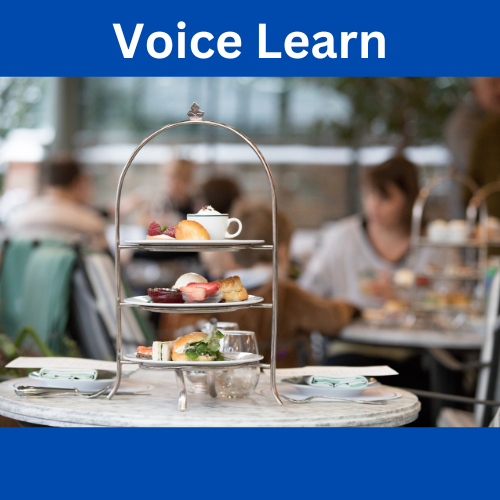
We have lunch in the afternoon.We have lunch in the afternoon. |

EveningEvening |

They watch TV in the evening.They watch TV in the evening. |
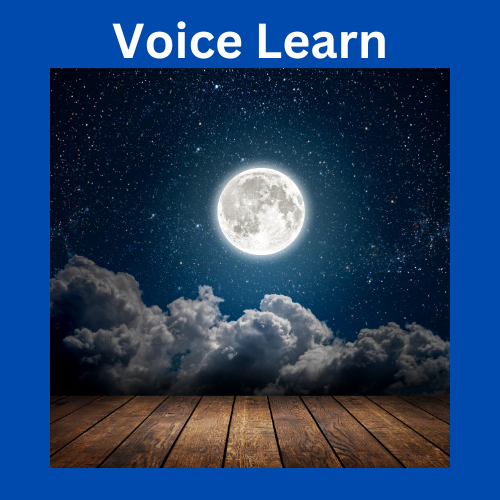
NightNight |

She sleeps at night.She sleeps at night. |
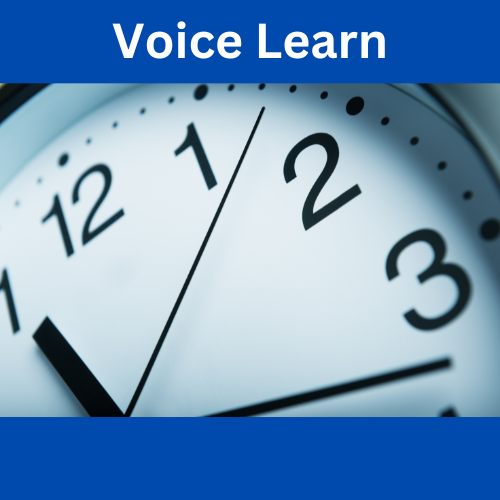
HourHour |

It takes one hour to finish homework.It takes one hour to finish homework. |
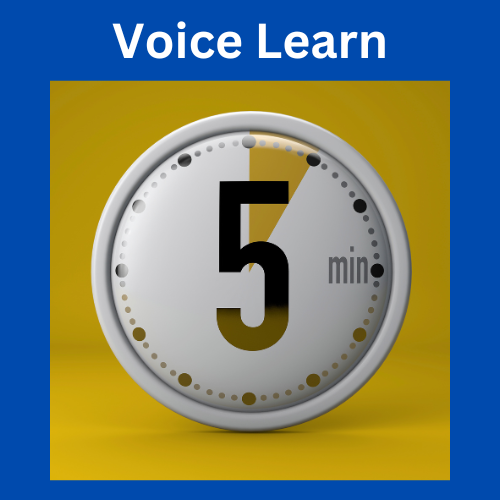
MinuteMinute |

He waits for a few minutes.He waits for a few minutes. |
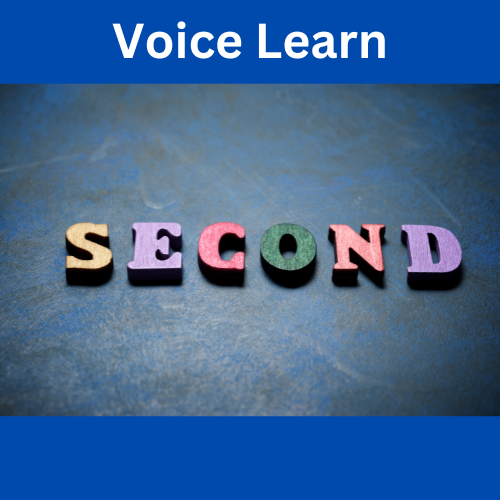
SecondSecond |
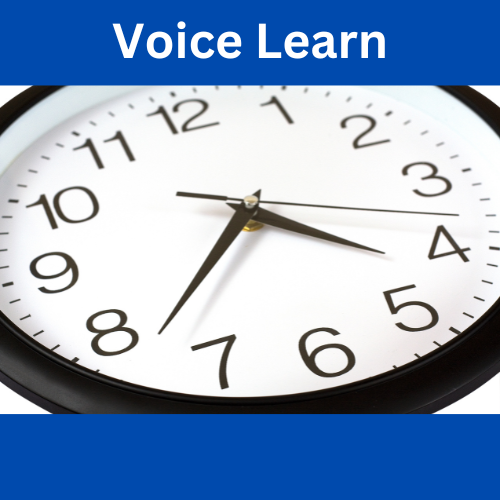
The clock ticks every second.The clock ticks every second. |
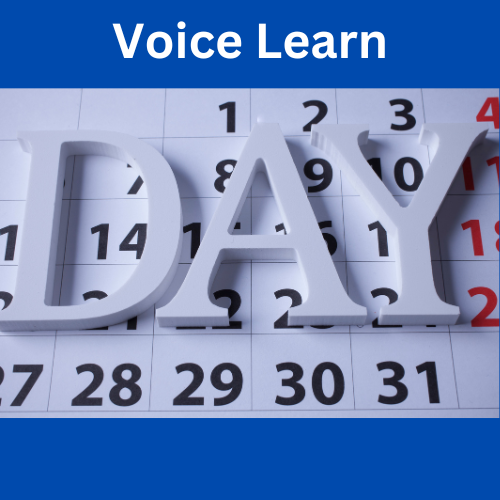
DayDay |

We go to school every day.We go to school every day. |
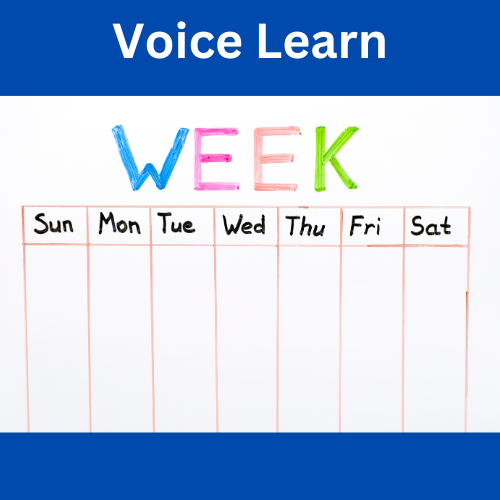
WeekWeek |
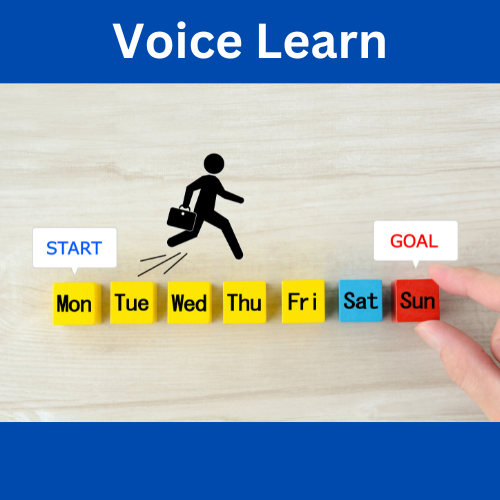
We have seven days in a week.We have seven days in a week. |

MonthMonth |

Her birthday is next month.Her birthday is next month. |
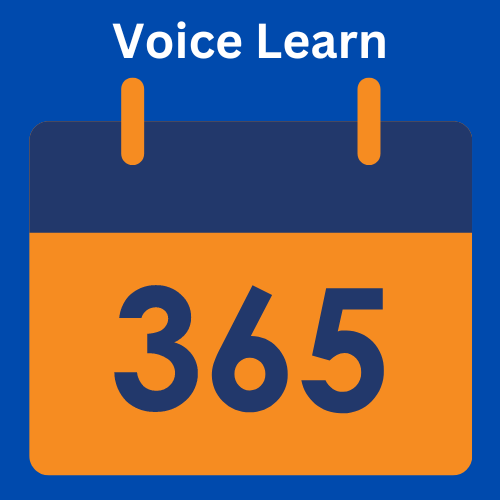
YearYear |
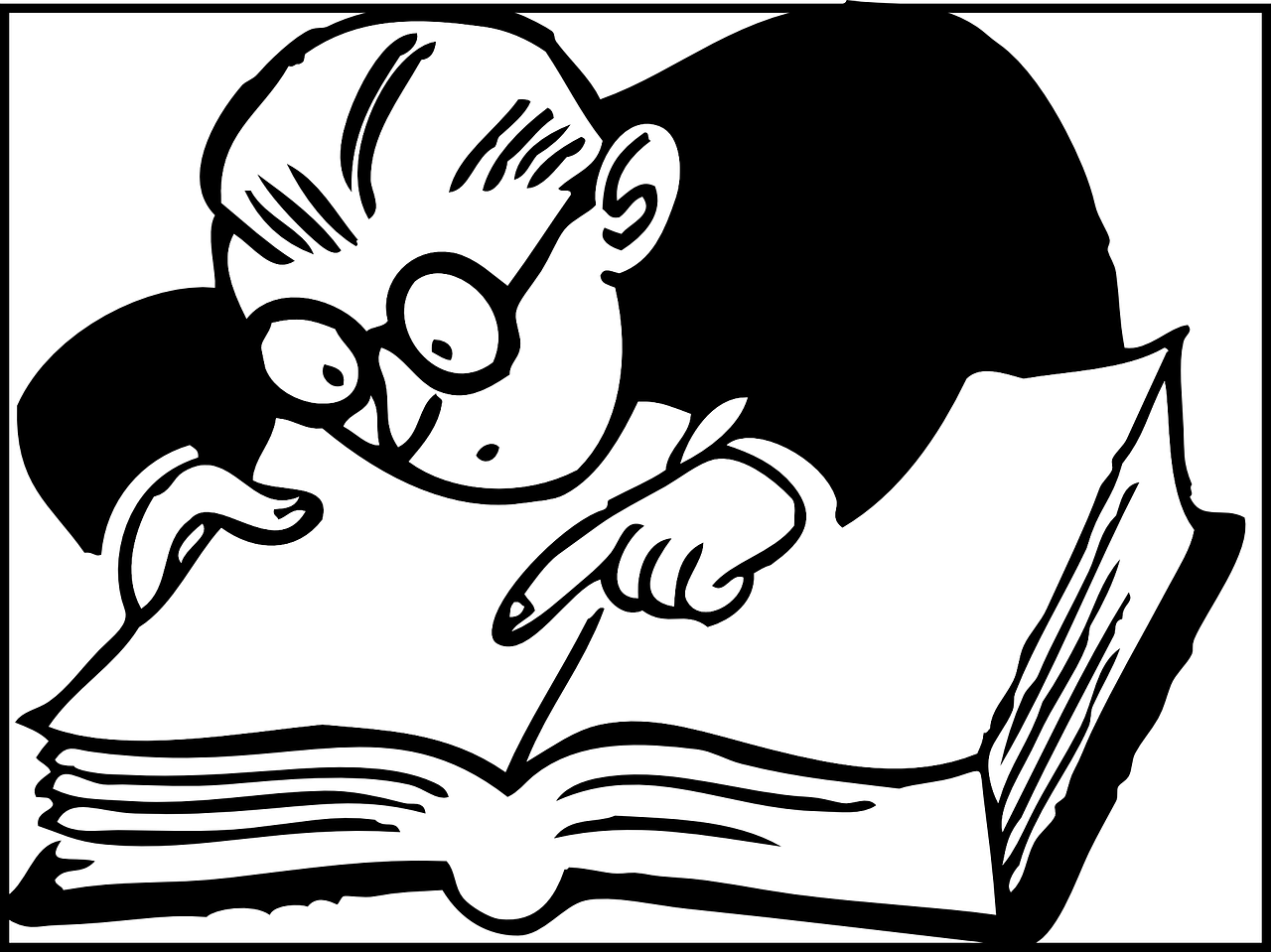
We celebrate New Year's Eve once a year.We celebrate New Year's Eve once a year. |
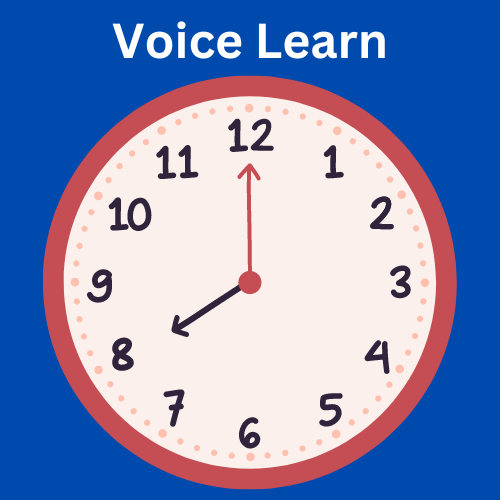
ClockClock |
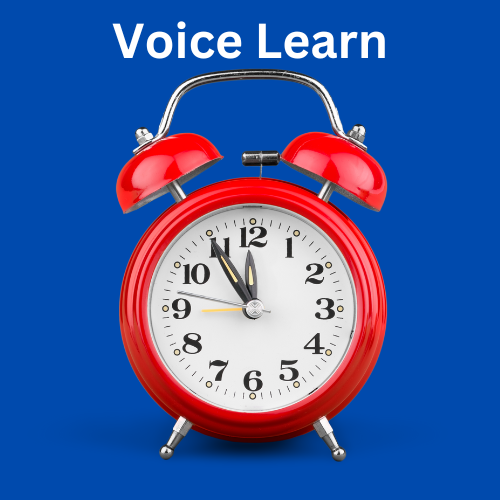
The clock shows the time.The clock shows the time. |
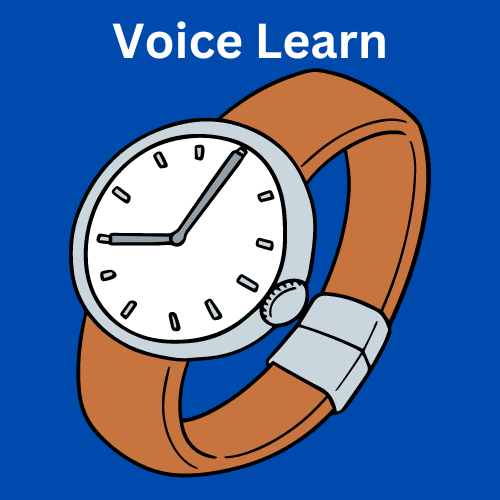
WatchWatch |
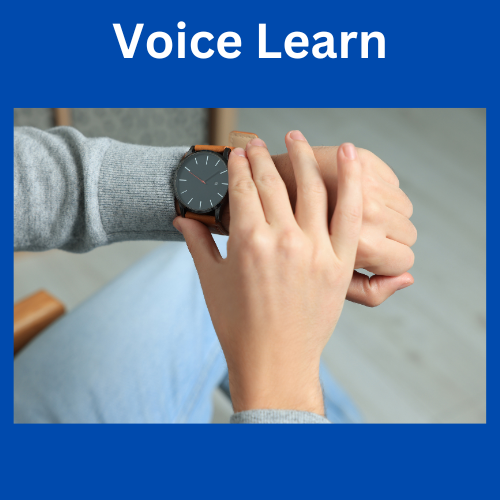
He checks the time on his watch.He checks the time on his watch. |
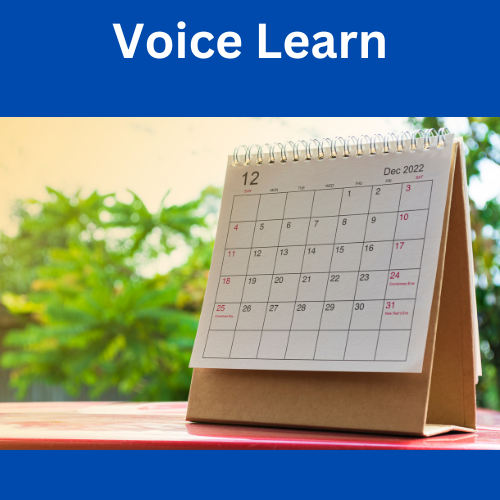
CalendarCalendar |
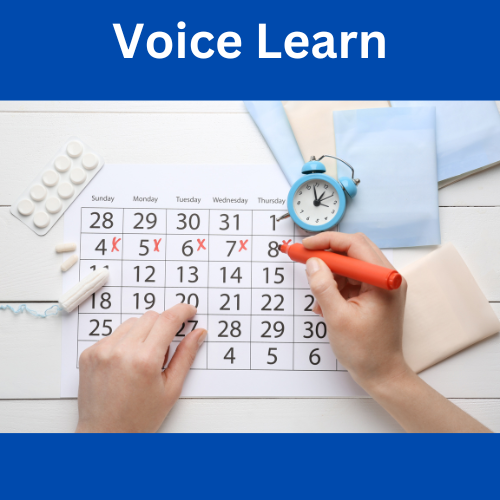
She marks important dates on the calendar.She marks important dates on the calendar. |
Congratulations! You have learned essential vocabulary related to time and daily routines in English.
Practice using these words and phrases to describe your daily activities and manage your schedule effectively.
With this knowledge, you'll be able to communicate about time with confidence in various situations.
Q&A Section Question: What device is used for measuring time?
Answer: Clock.
Question: What do we call the time between sunrise and noon?
Answer: Morning.
Question: When is the main meal of the day typically eaten?
Answer: Dinner.
Question: What unit of time is equal to sixty minutes?
Answer: Hour.
Question: What do we call the first meal of the day, typically eaten in the morning?
Answer: Breakfast.